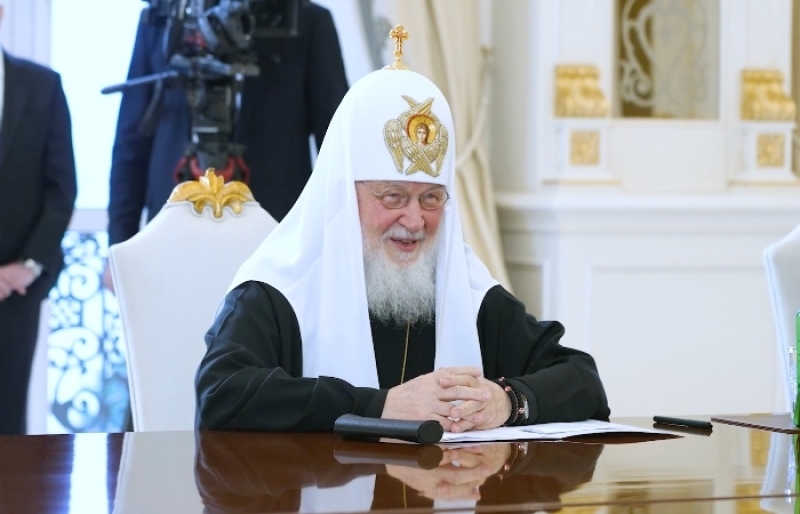
The head of the Russian Orthodox Church, Patriarch Kirill of Moscow, expressed commendation for Vladimir Putin's management of church and state relations, despite religious persecution in Russia.
In a letter to the Russian president celebrating the 25th anniversary of Putin’s rise to the position of head of state, Kirill described this period as “a whole new era in Russia’s history.”
In the letter, Kirill stated, “I would like to express my profound gratitude for the relationship between Church and State that has taken shape with your active support — a relationship without precedent in our nation’s history,” as quoted by The Orthodox Times. He praised the “fruitful dialogue between government and Church,” asserting that it “not only helps address daily challenges but also plays a vital role in the moral renewal and transformation of society.”
Kirill also commended Putin’s efforts in advancing “significant progress in the socio-economic and scientific-technical development of the country,” and highlighted the unleashing of “vast intellectual and cultural potential.” Kirill has been a prominent supporter of Putin and the Russian invasion of Ukraine, which he has called a “holy war” that is “crucial to defending the unified spiritual space of Holy Russia.”
The World Russian People's Council, which Kirill leads, issued a statement last year claiming that the invasion launched in 2022 was “a struggle against the criminal Kiev regime and Western-based Satanism.” While Kirill’s support for Putin and the invasion remains, concerns about religious persecution have been raised by human rights advocates.
Open Doors, a Christian persecution watchdog, released a report in January that revealed persecution in Russia affects Christians in Muslim-majority regions as well as “unregistered churches” involved in evangelism. The report noted, “The military campaign launched by Russia in Ukraine on 24 February 2022 has led to an increase in state surveillance.”
The report also highlighted the cultural pride rooted in Russia’s history, which impacts its religious landscape. It said, “While Russian Orthodoxy is regarded as typically Russian, Roman Catholicism and especially Protestantism are seen as Western and alien.” This cultural perspective contributes to the marginalization of religious minorities.
The bipartisan U.S. Commission on International Religious Freedom warned last August that Russia is among countries using disinformation tactics to suppress the rights of religious minorities. The commission pointed out that “The Russian government has labeled a variety of religious groups as ‘neo-pagan cults,’ including the Protestant Word of Life Church.”
Since Russia’s 2016 law banning evangelism outside of established churches under the guise of countering extremism, many Evangelical Protestants and Muslims have faced convictions and fines.

















